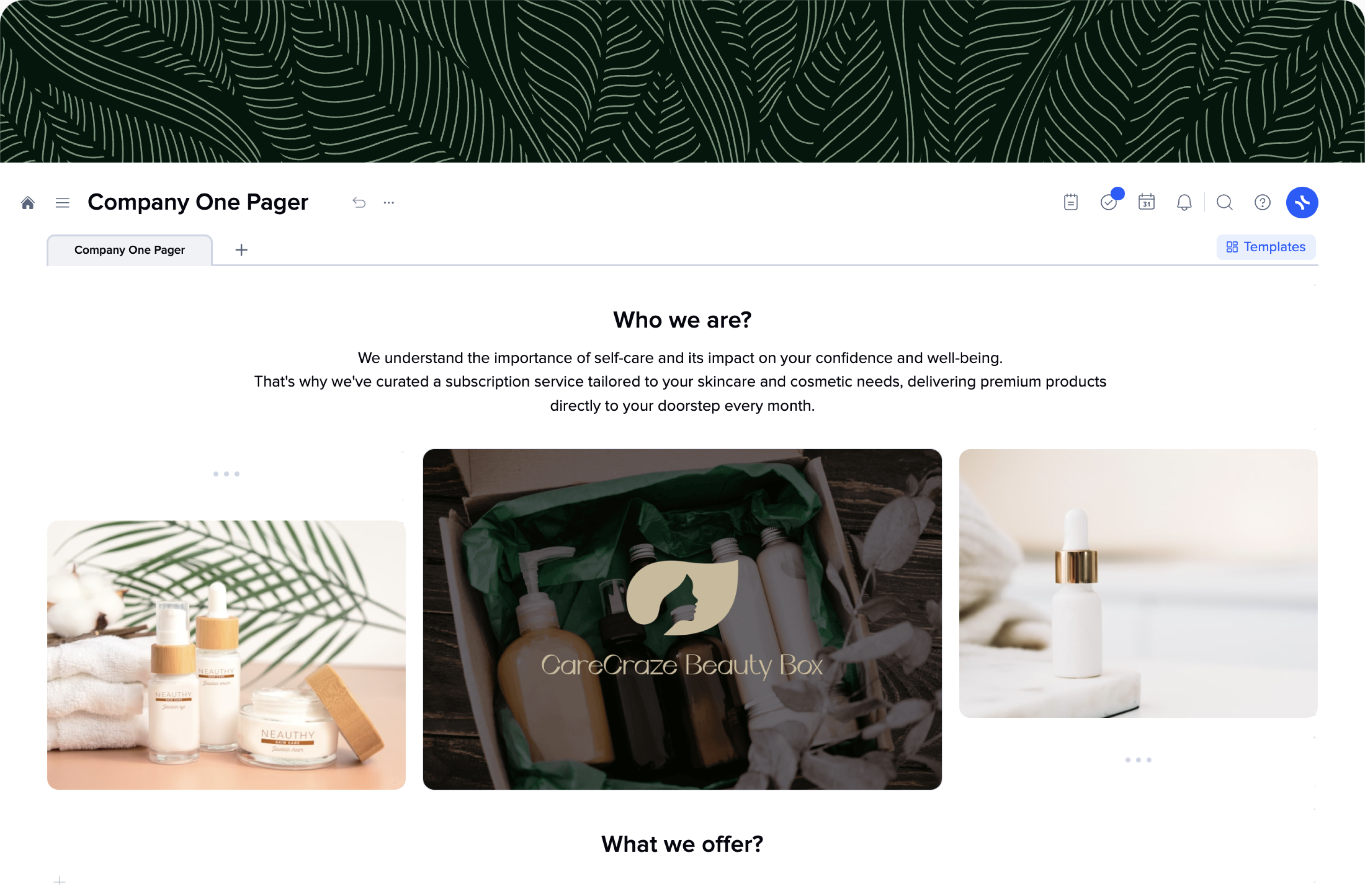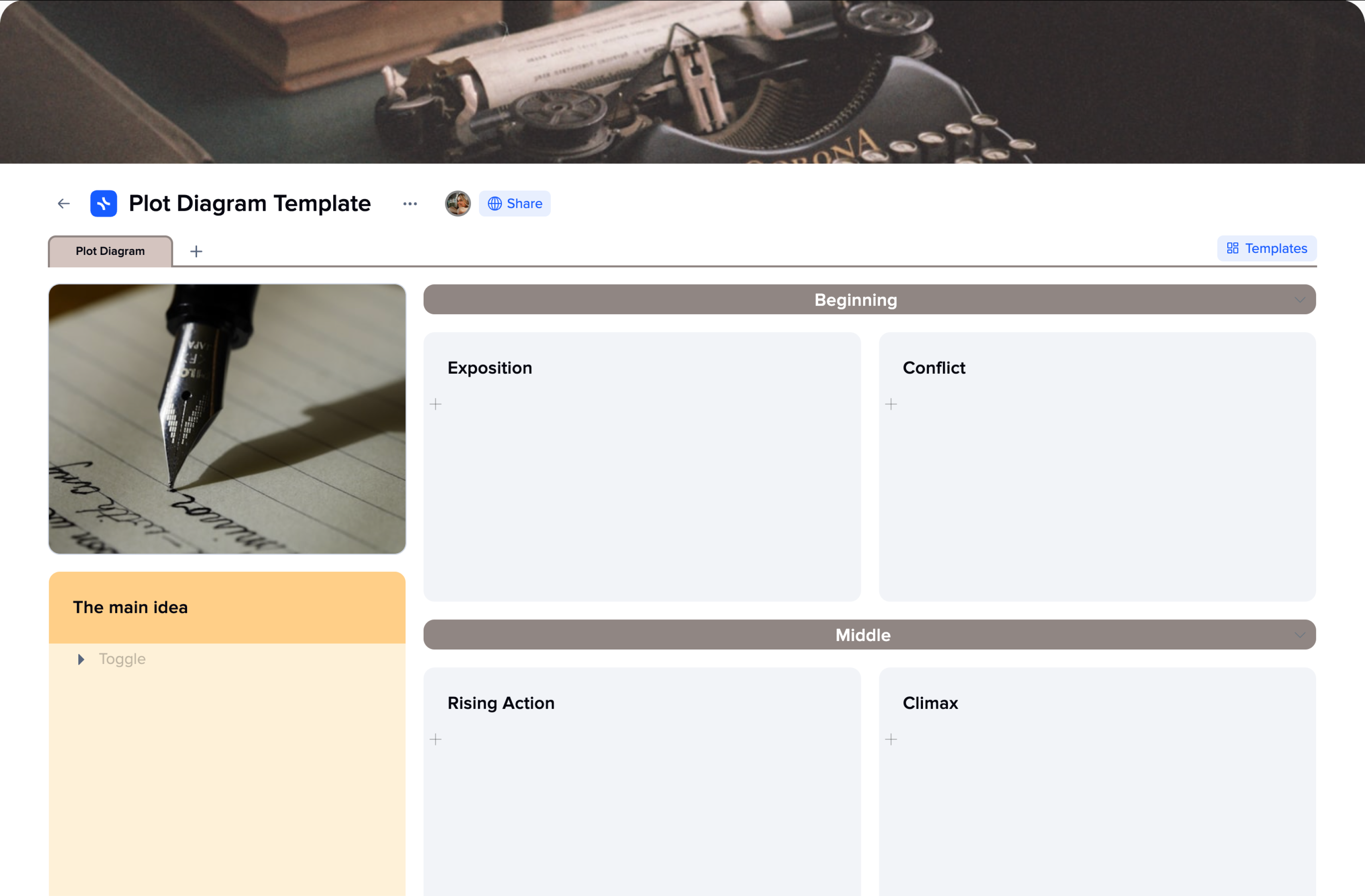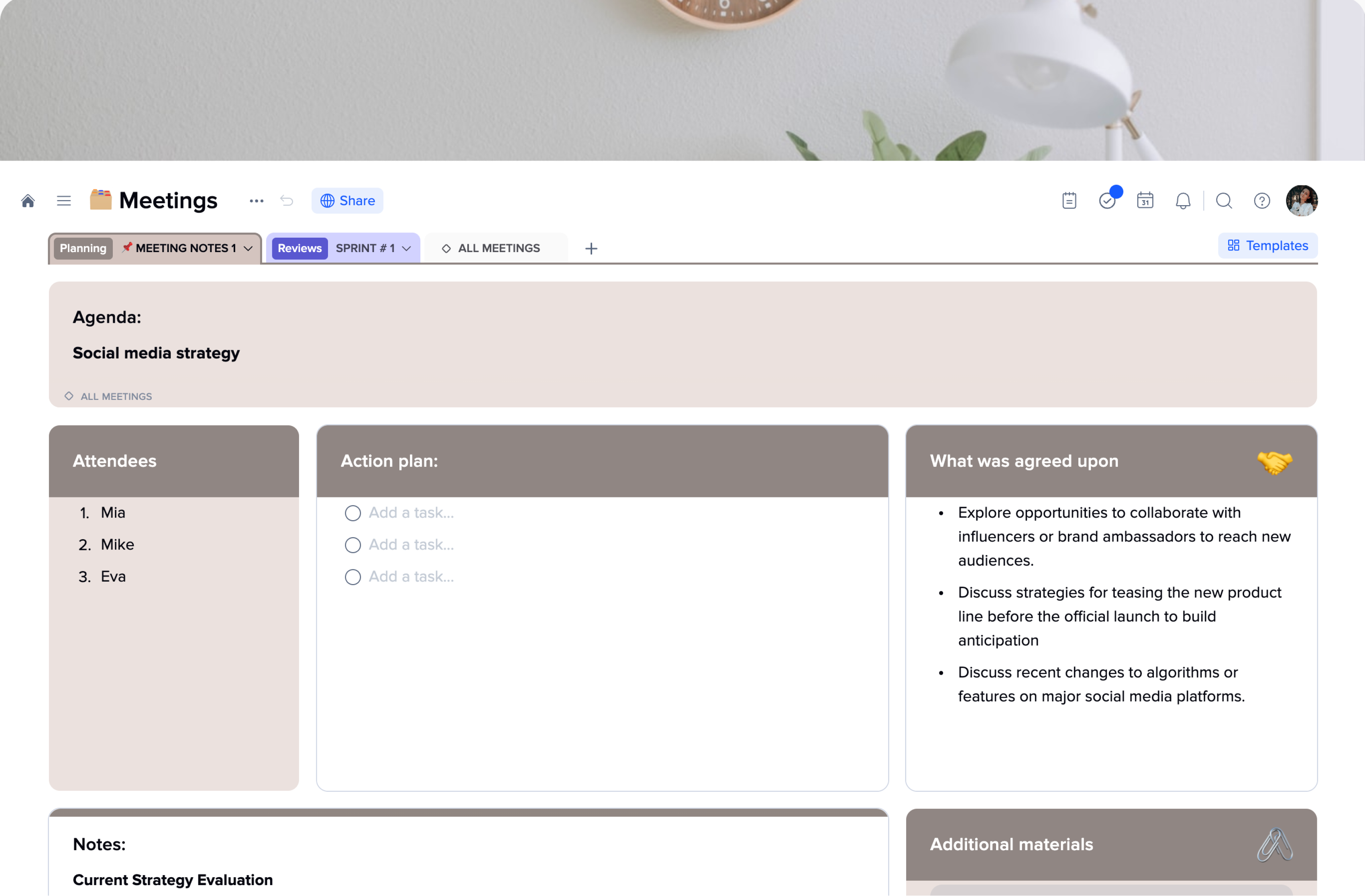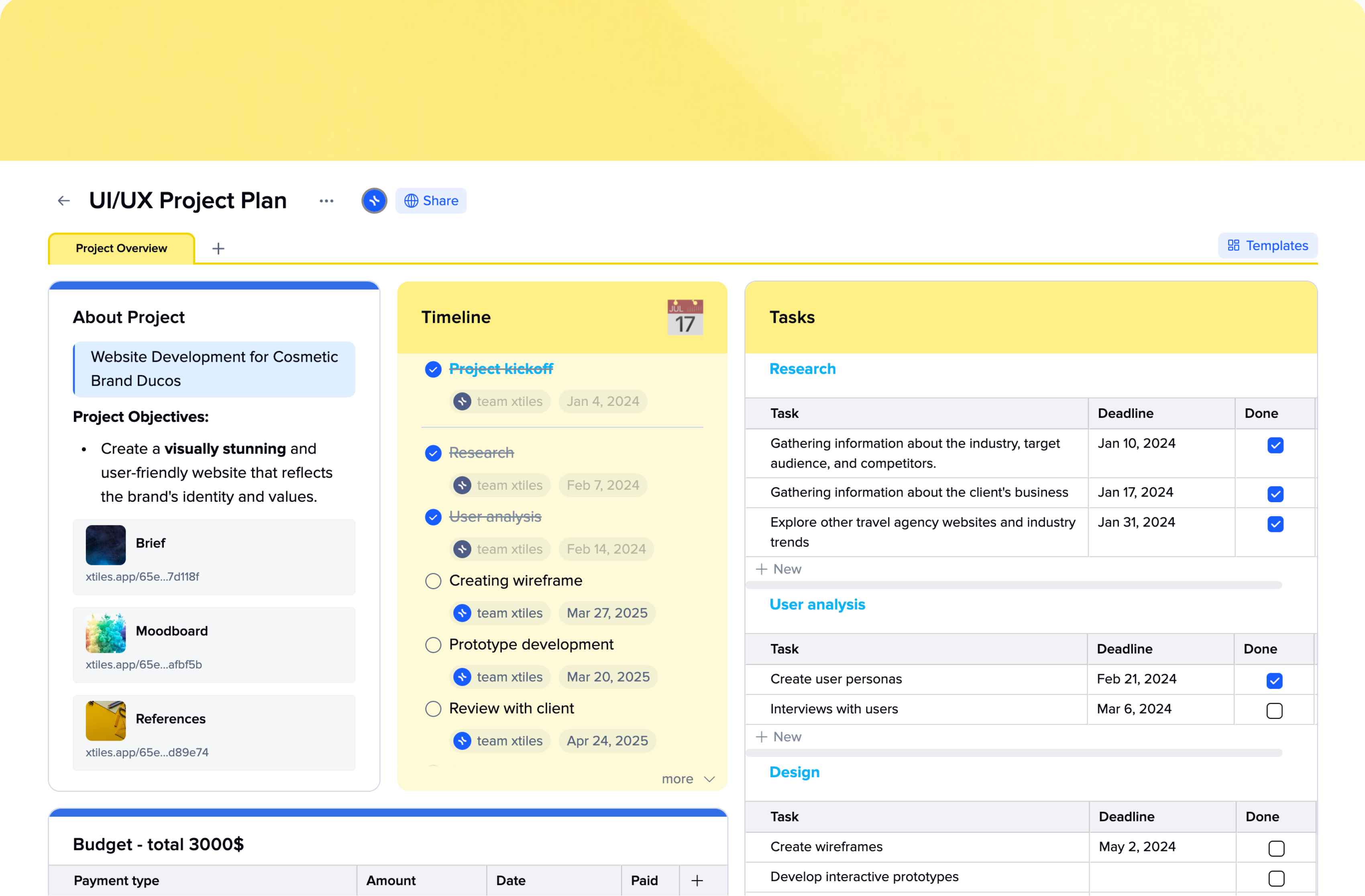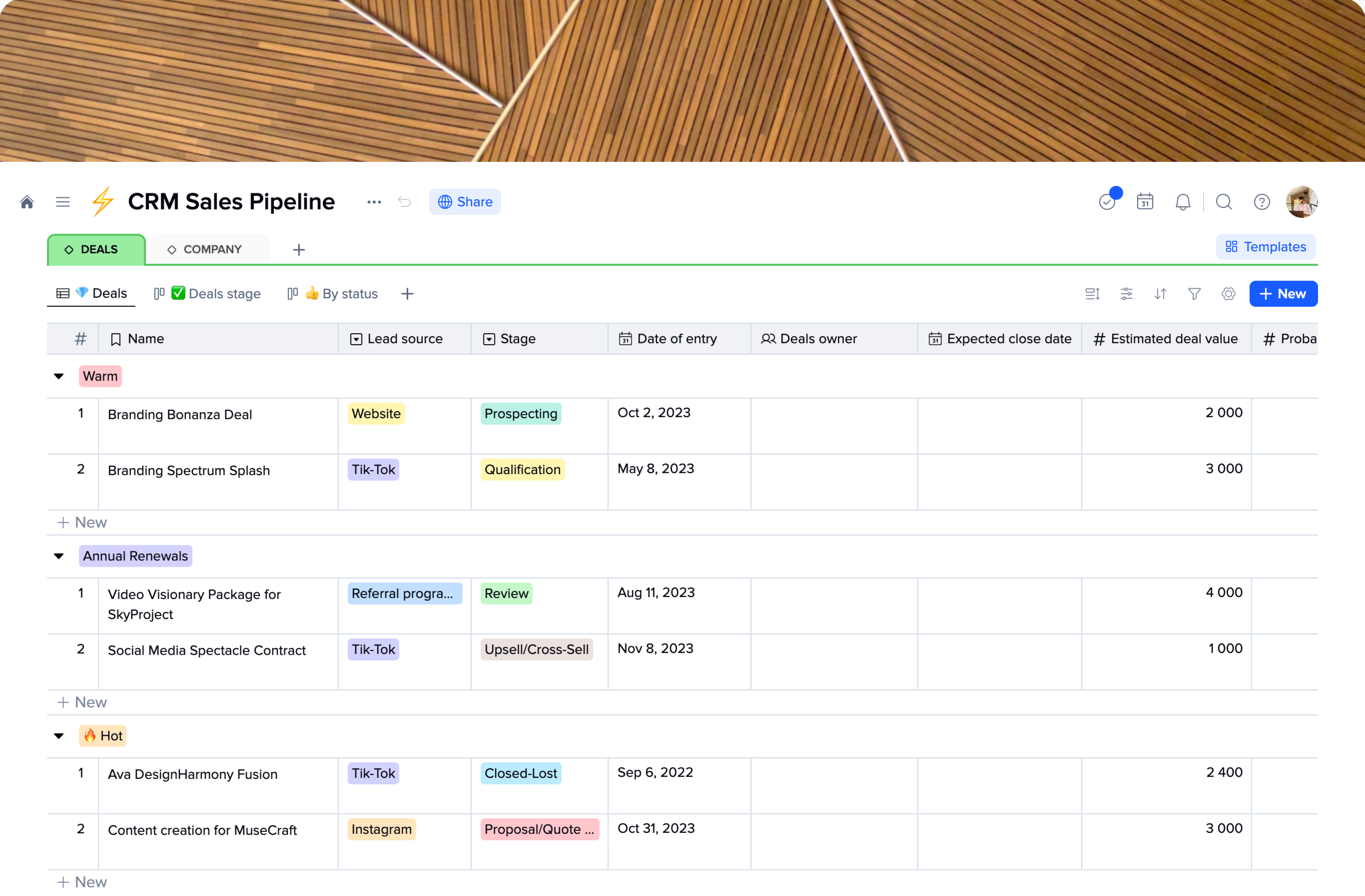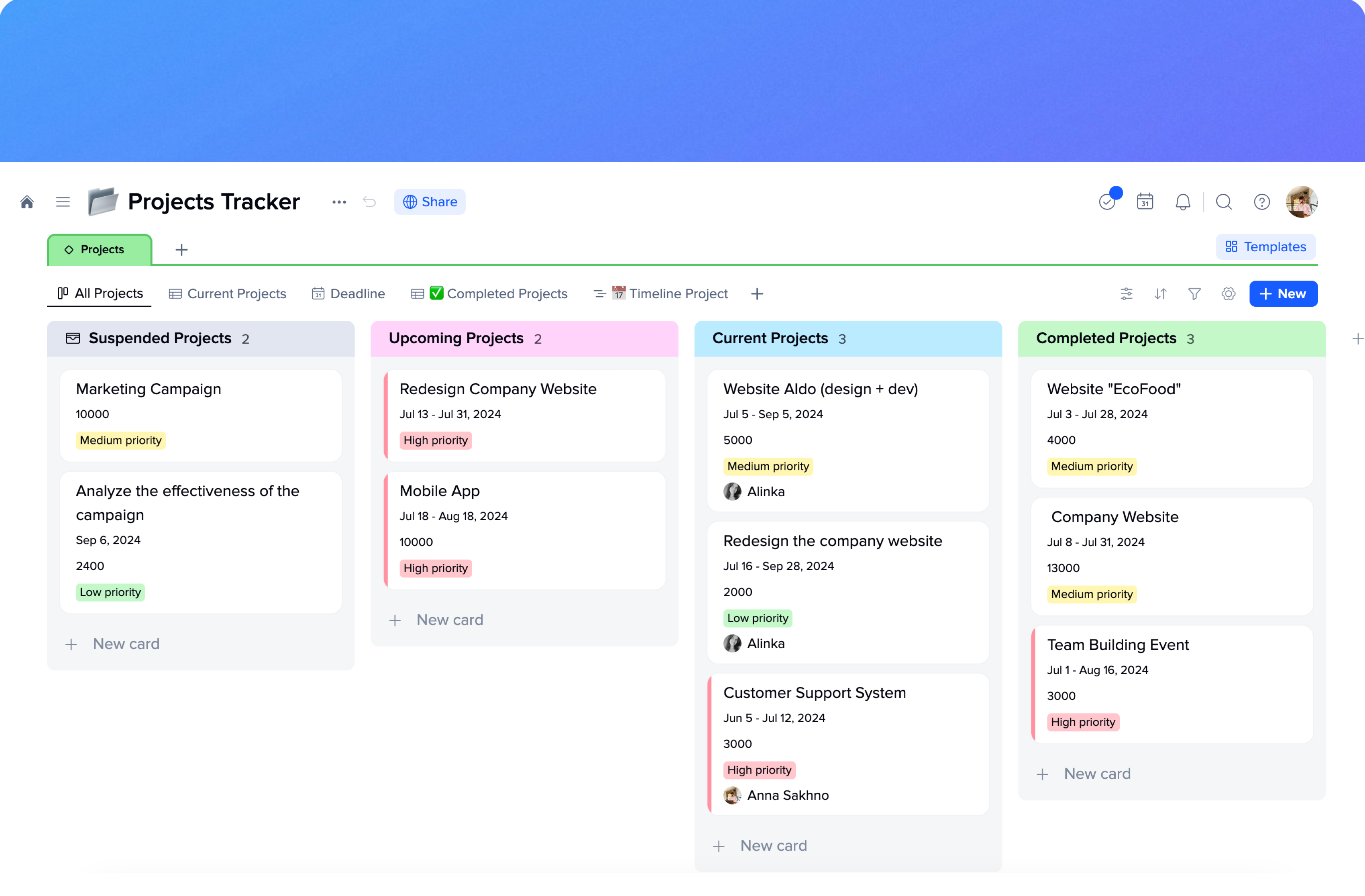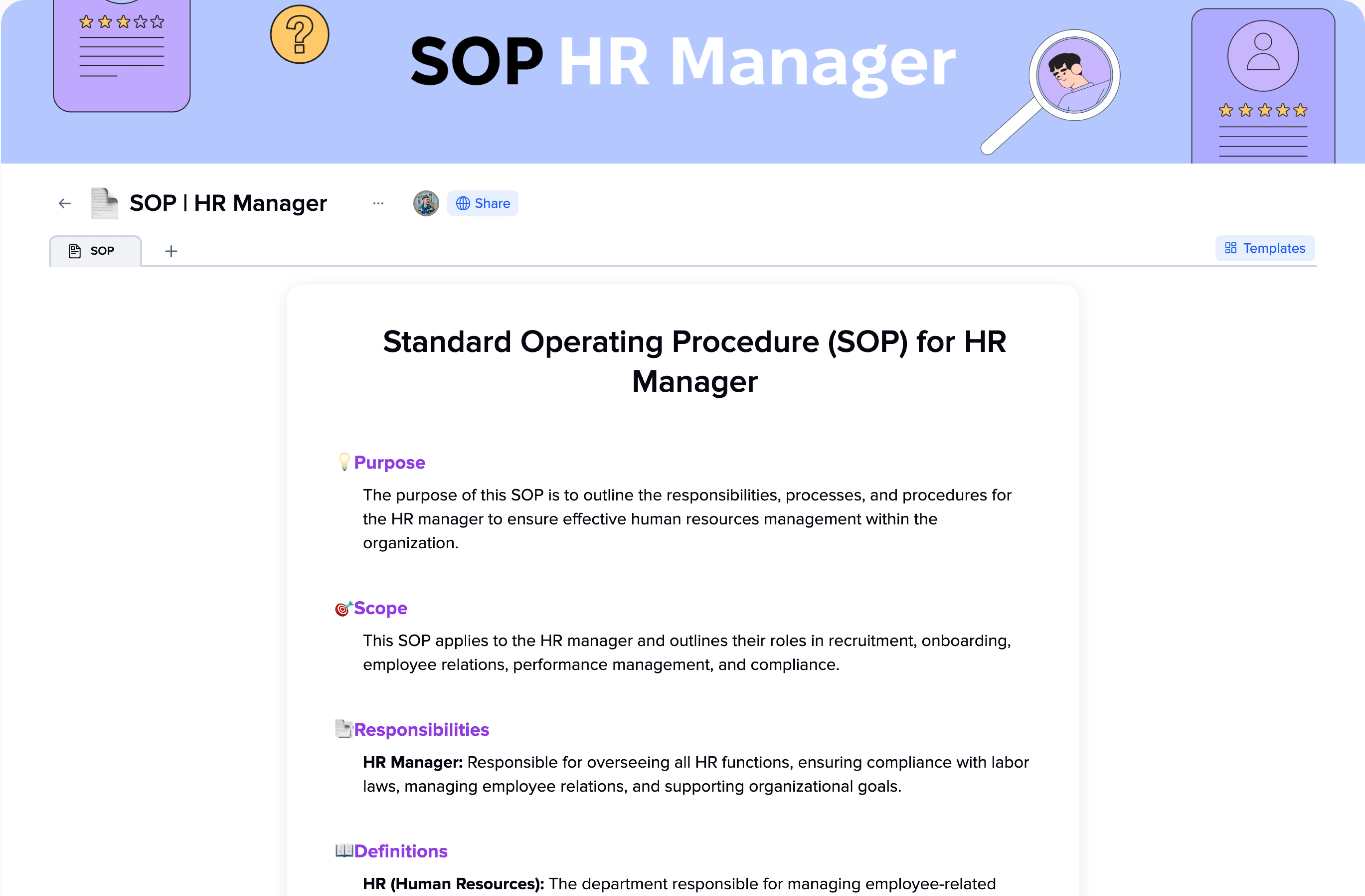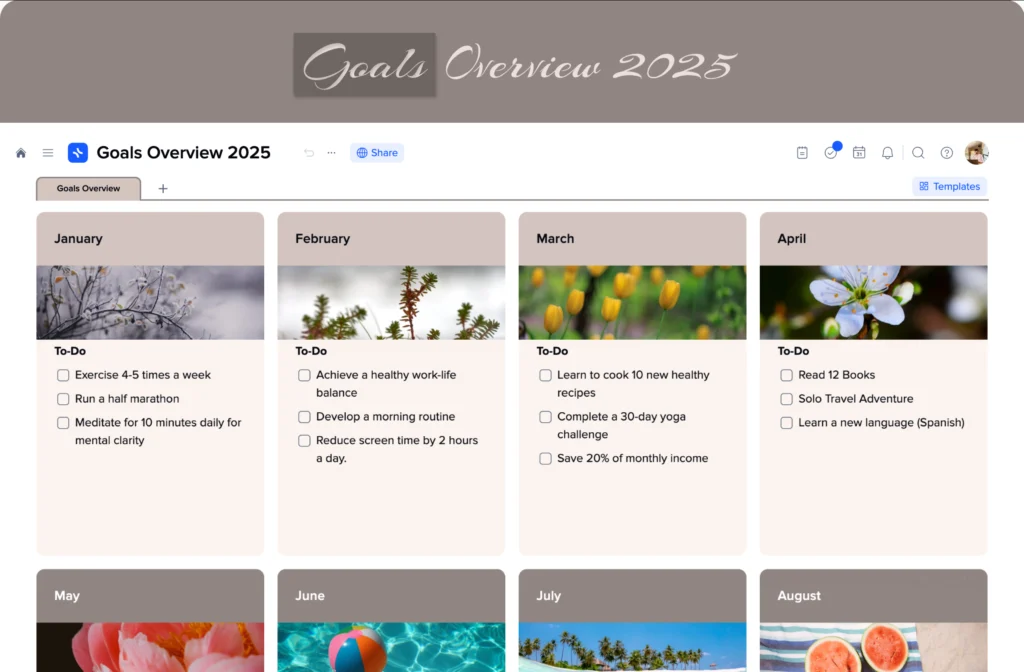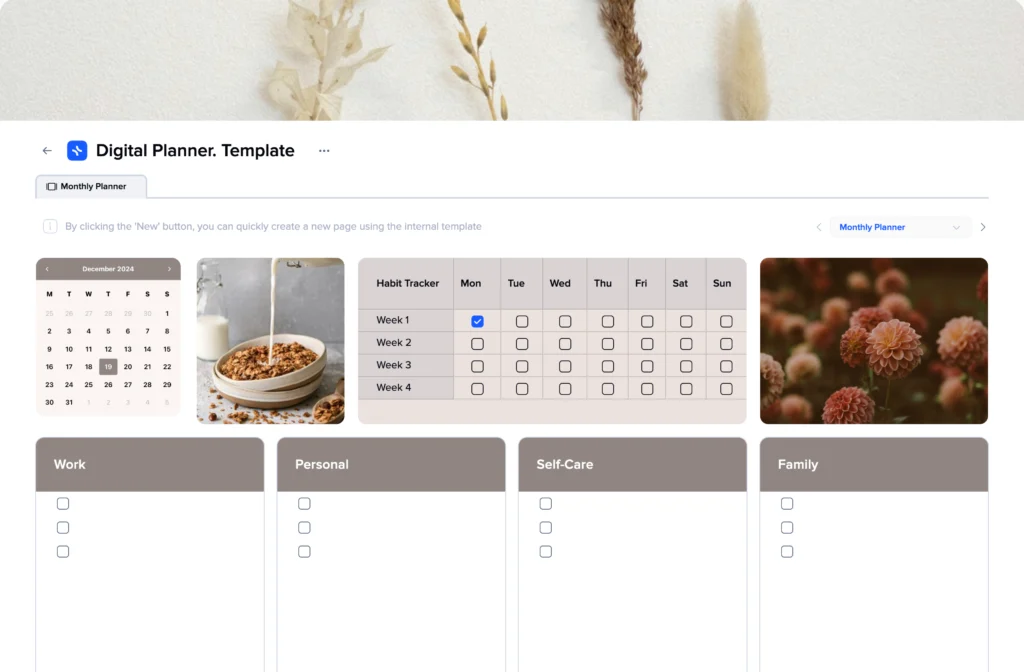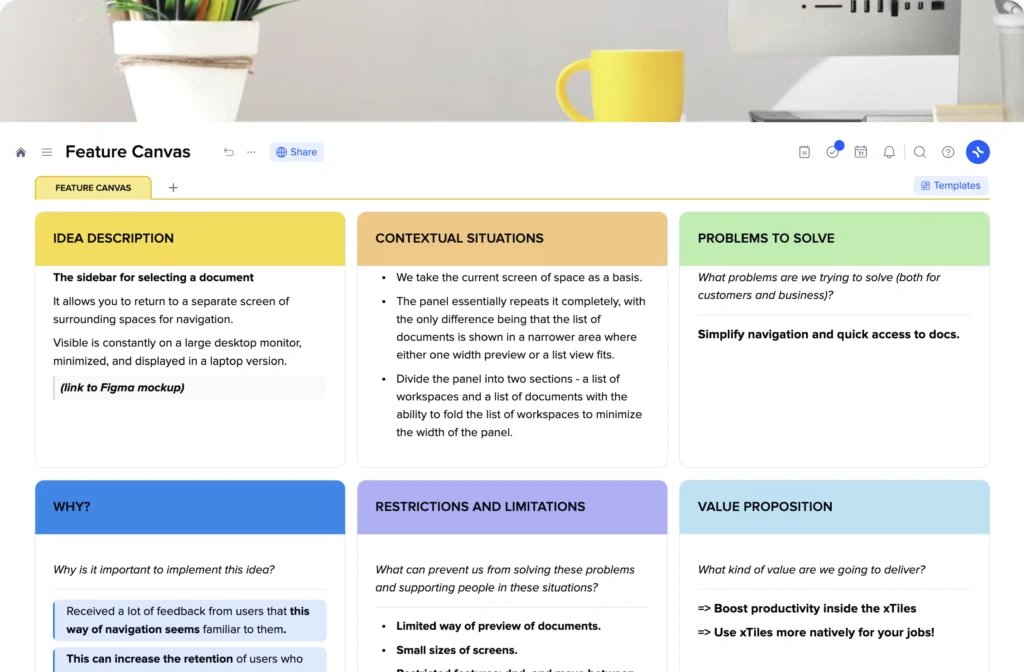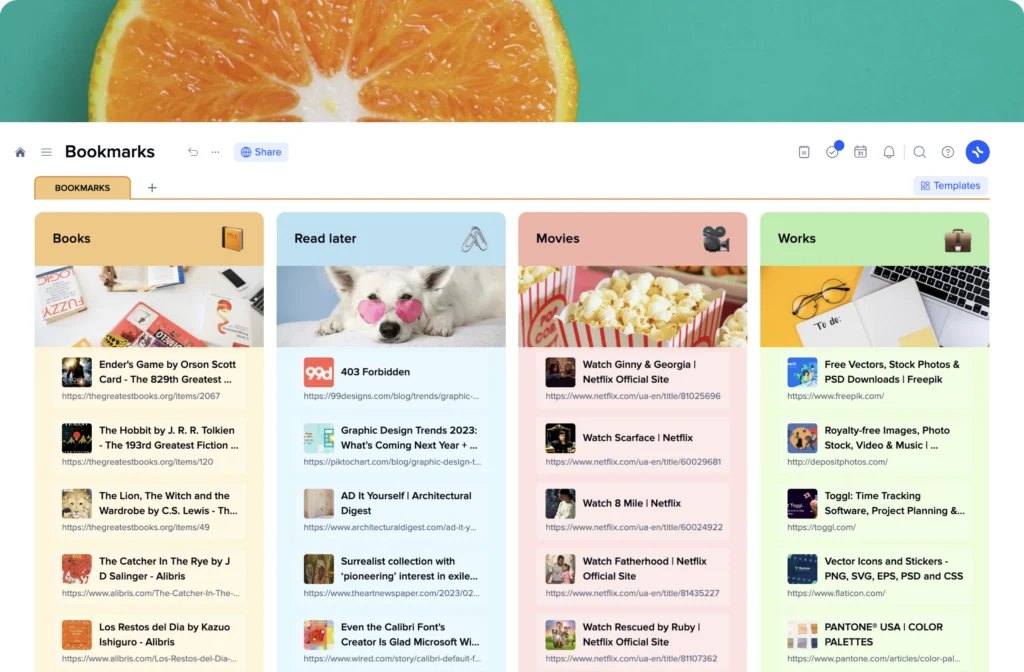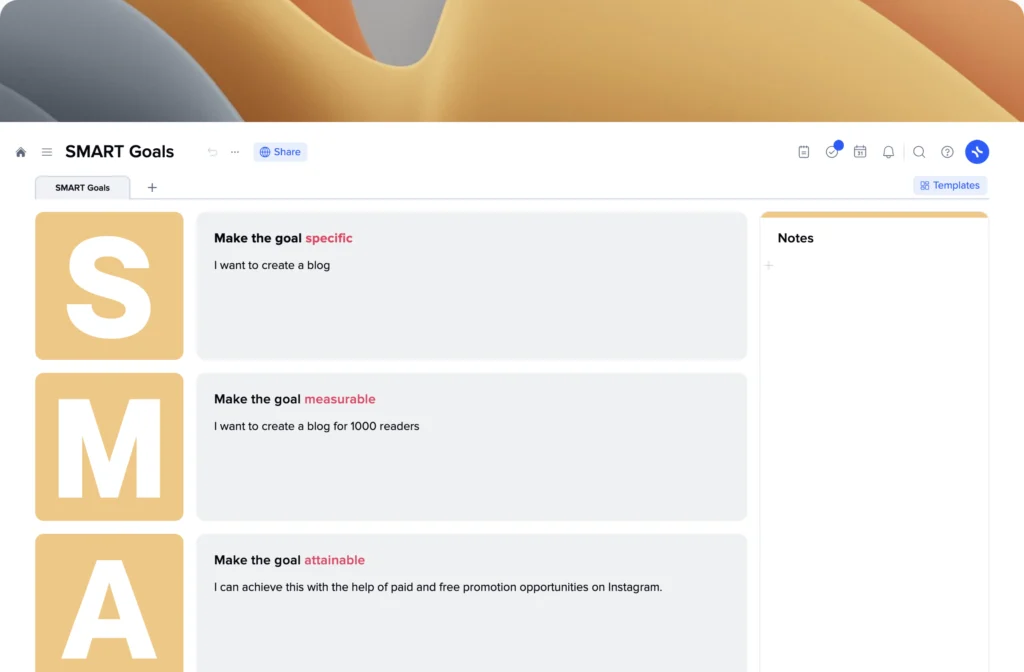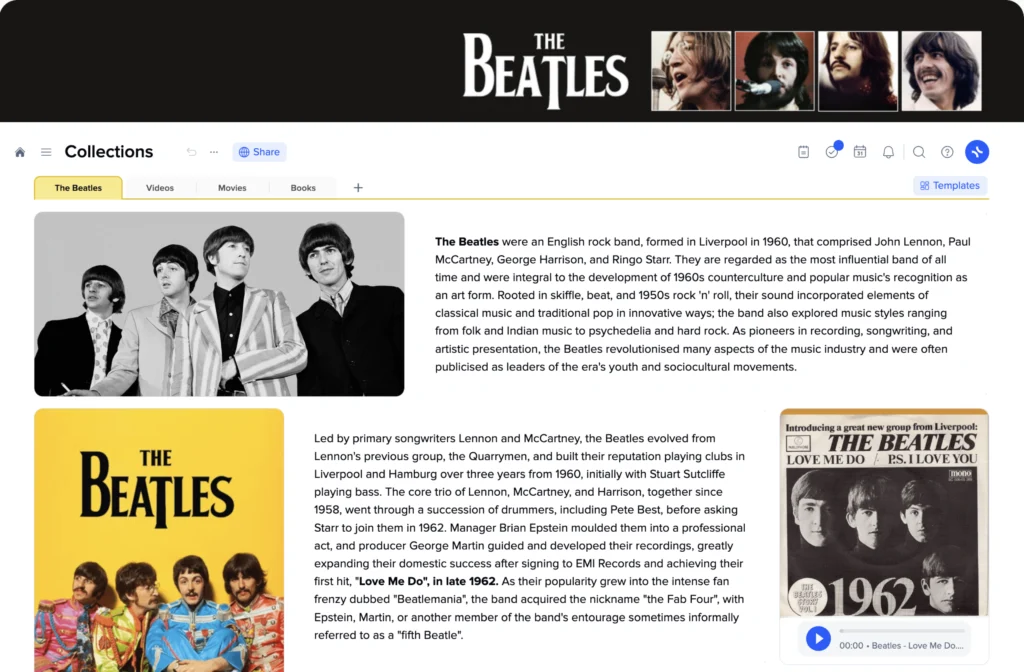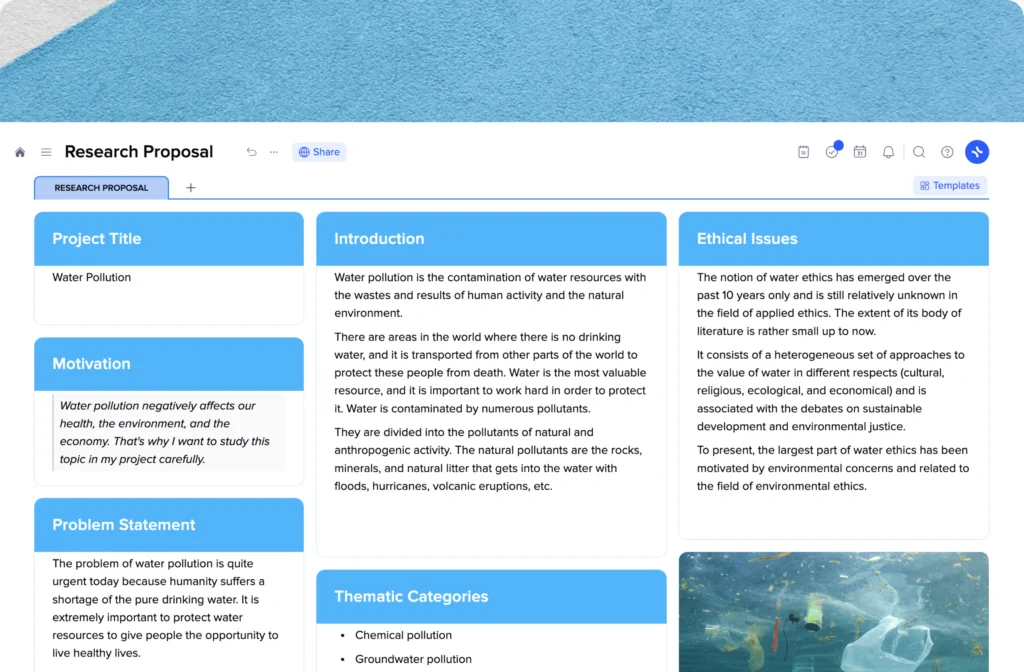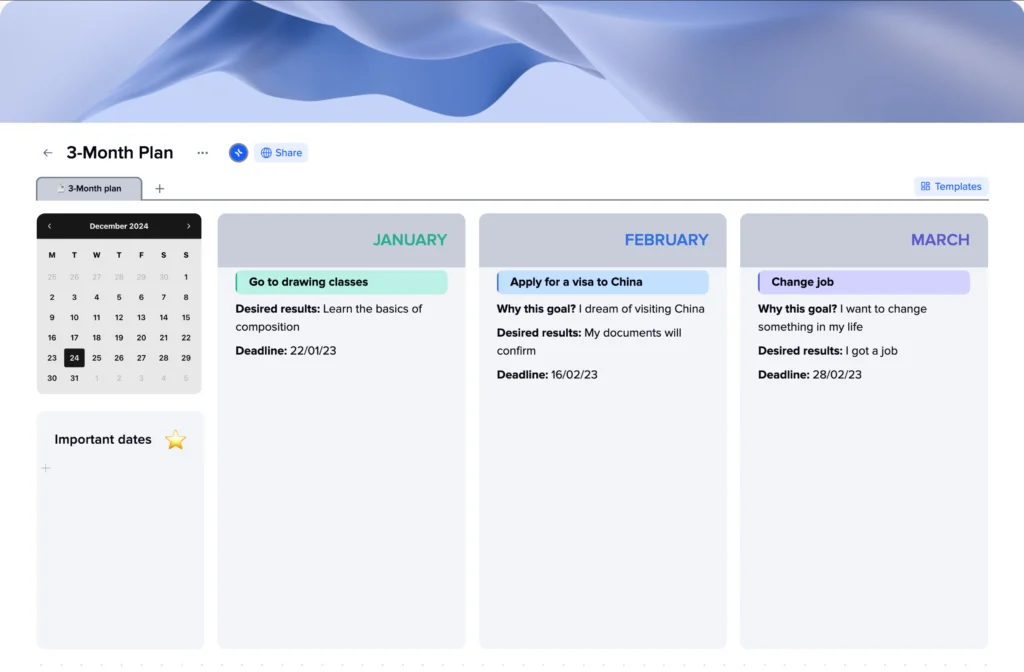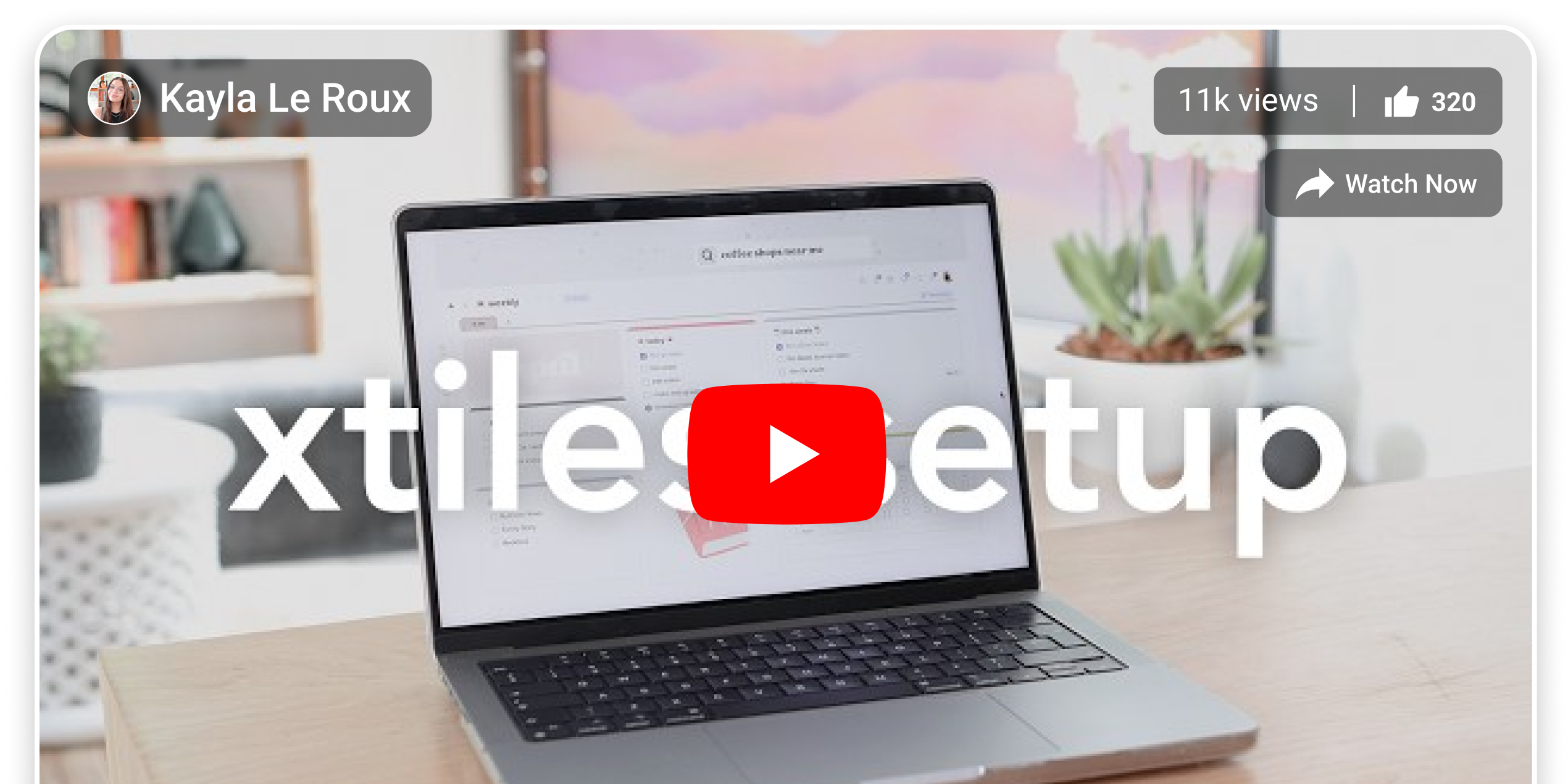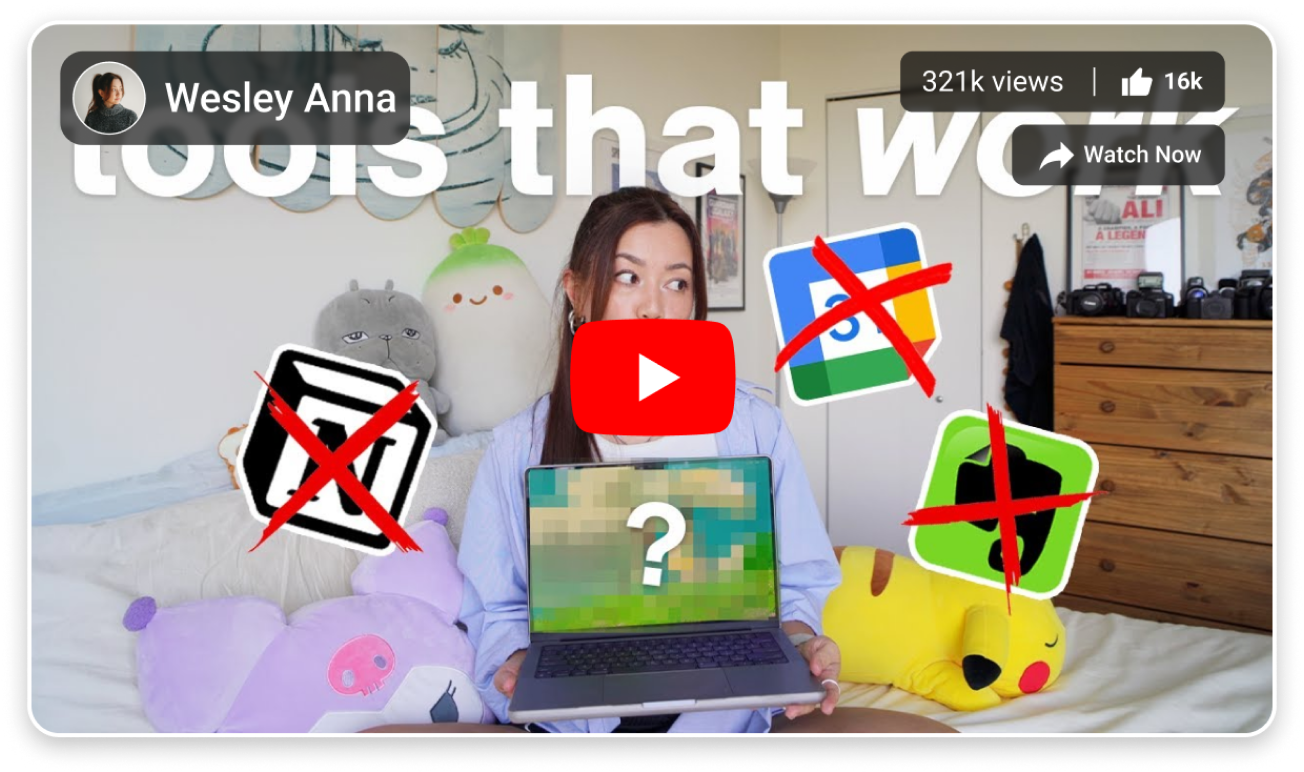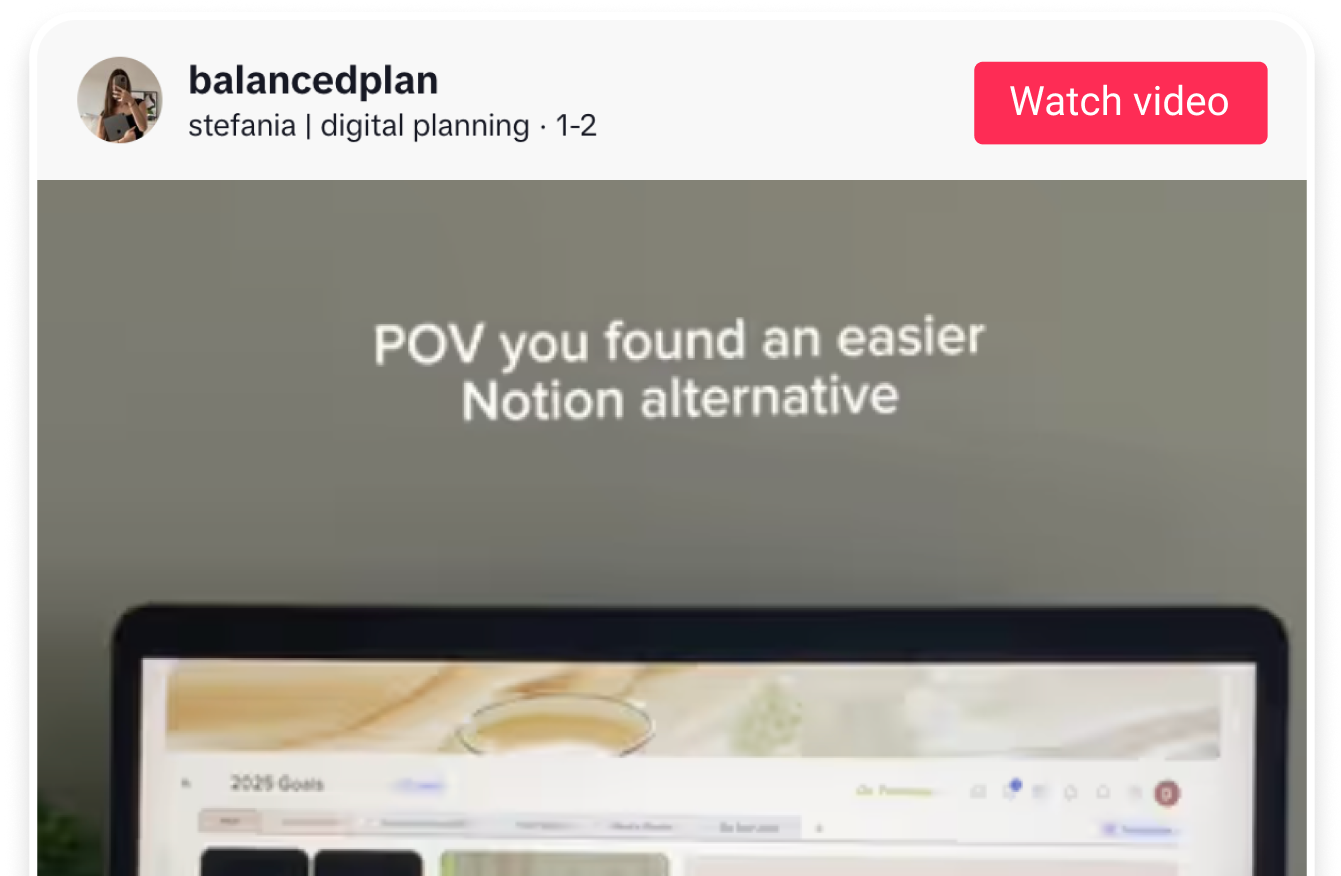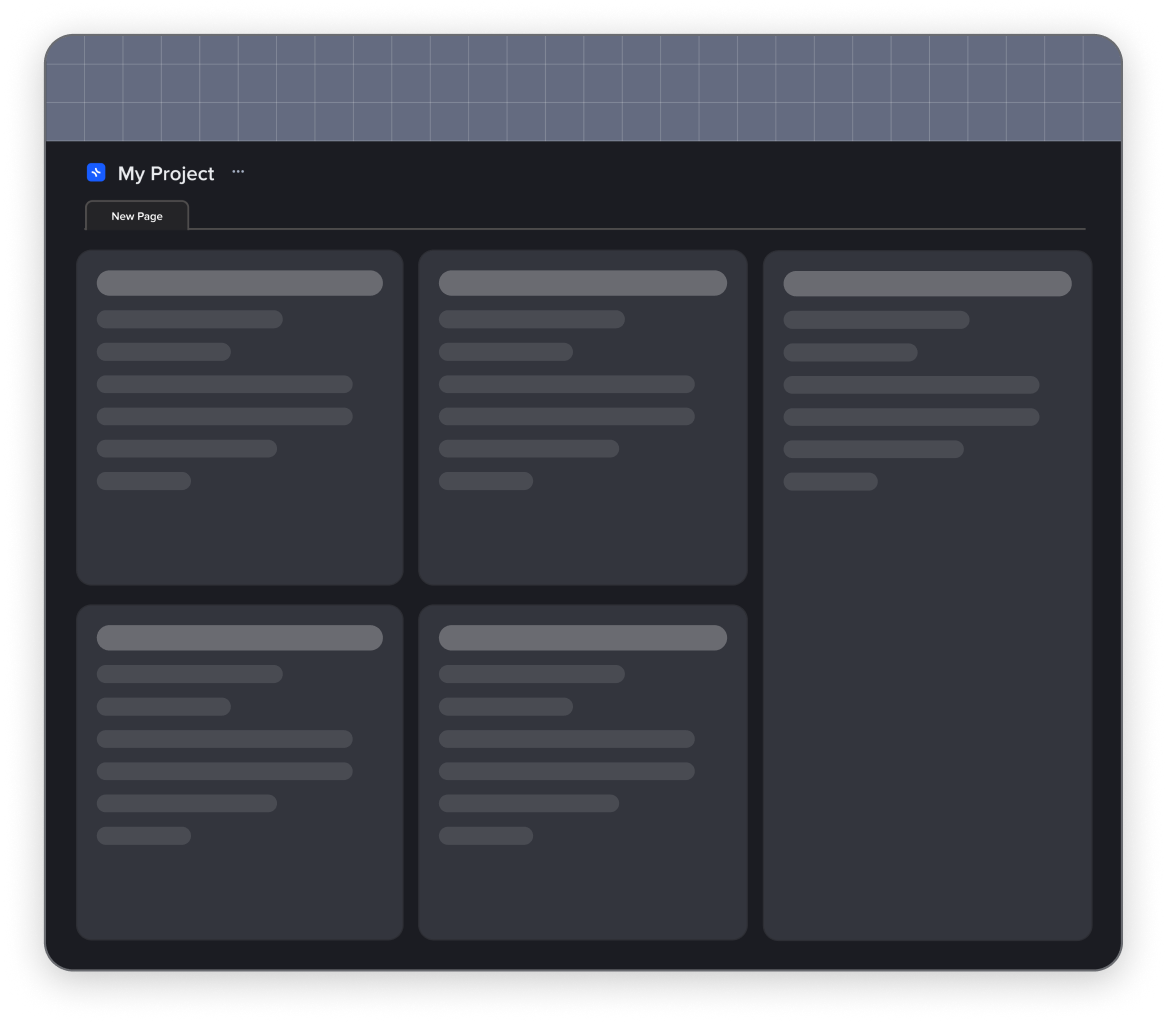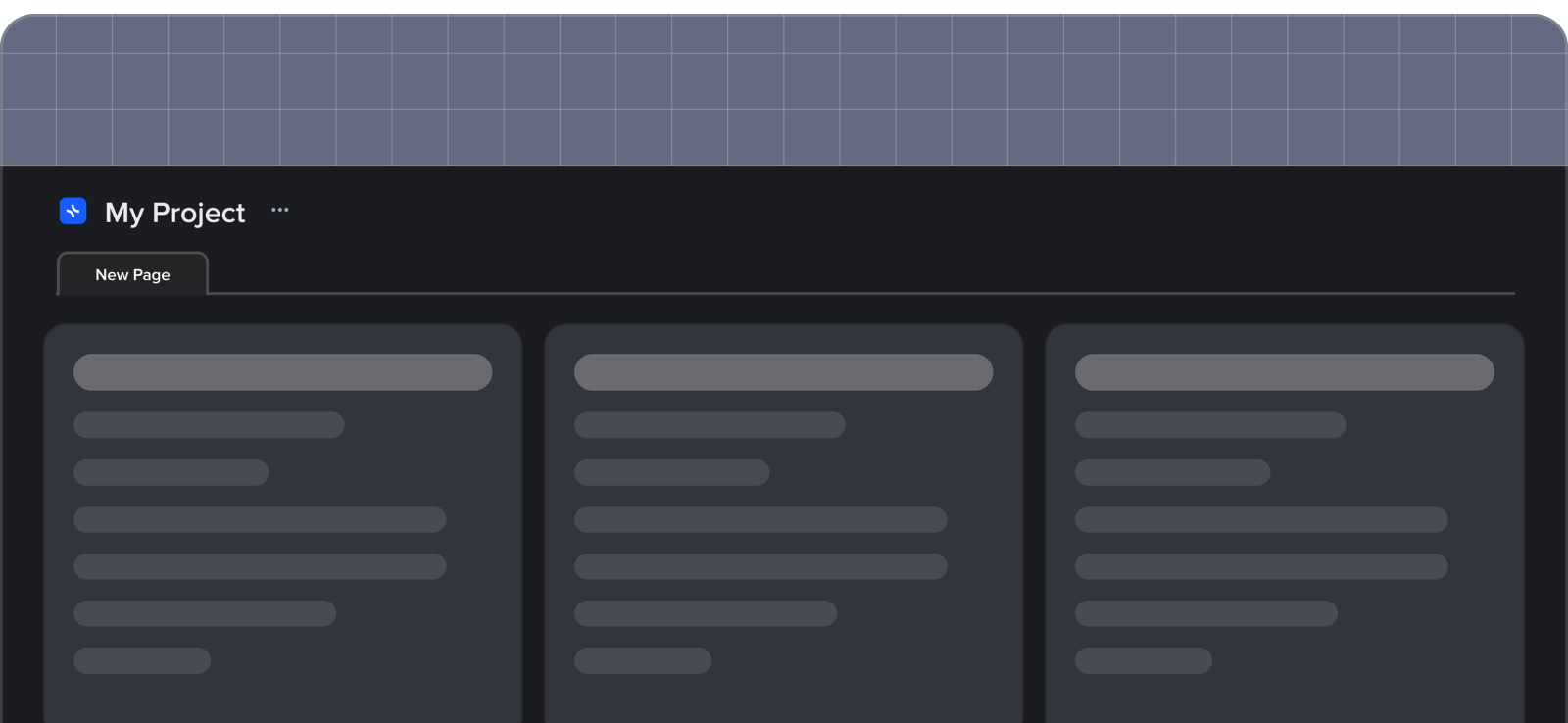One Pager Template
There’s a fine line between inspiring people to learn more about what you can offer and discouraging them. How can you put in a couple of sentences everything worthy about your business? Yes, it’s a challenge, but we’re here to help you complete it successfully. Certain rules and principles help to grab people’s attention, so they present us with the most valuable asset they have – time. Then, using the polished structure and refined content to tell them the most important things about ourselves, we can engage our potential audience.
Companies are constantly trying to come up with new methods to be ahead of their competitors and win the fight for people’s attention. However, among all the latest marketing tricks and approaches, few maintain their status quo. These tools have already proved their effectiveness over the last few years, and the latest research shows that it won’t change much over the next few years.
One of them is a one-pager – a document that presents your business in the most concise yet compelling way. Some may think that one page is not enough to tell everything important. However, once you have a clear structure and know what exactly to put into your company’s one-pager, you will see that that’s the perfect size to introduce your business to everyone who may be interested. The modern world is constantly changing, never stopping for too long on something. That’s why one page is the perfect amount of space to contribute everything you find worthy of sharing.
Before we start working on your one-pager using xTiles template, let’s go over what exactly a one-pager is and why neglecting its creation may be a bad decision.
What is a One Pager?
So, what is a one-pager? It’s your company overview, the essence of your company history, goals, beliefs, values, plans, etc. This document’s name speaks for itself. Telling the world about your company, you will be limited to one page. Is it enough? More than you would think. You have enough space to explain why you’re the one, and the potential customer won’t sacrifice too much time learning it. It’s a win-win situation.
Many business owners would like to talk about their companies for hours which is completely understandable. However, that’s not an option when you try to attract someone’s attention. Maybe later, you could go back and forth, but the beginning should be intriguing, amusing, and arousing interest in your company. Then, you will have a chance to go further and present your customer with every detail.
One-pagers rules no one speaks about
There are certain rules regarding how a one-pager should look and what it should contain. And naturally, when creating one, you will find that there are pitfalls we would like to mention too.
- The first rule of a successful one-pager is to make it look easy but give the feeling of how much you have put into it. A well-done job, in this case, a great one-pager, stands out for any company better than anything else. If you can work so devotedly on your one-pager, then you take this approach for everything else.
- One-pagers are the best option to tell the most important things about your company in a visually appealing way. Why is the visual part so important? Because it’s what people estimate in the first place. Although we know that there can’t be a lot of text in one-pager, there still is content people need to consume, which takes a couple of minutes. While colors, designs, elements placement, etc., can be checked in a couple of seconds. Visuality is a convincing factor to look further.
- A successful one-pager is humble but confident. There’s no need to brag about your achievements because that would be the last thing that helps to build credibility.
- Your one-pager is about your audience, their needs, and how your company and its features may help. When you start working on it and through the whole process, try to put yourself in potential readers’ shoes. Would you hastily nod to every sentence?


